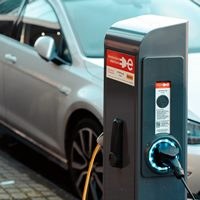(BRUSSELS) – The EU Council agreed Thursday to give manufacturers of electric cars in the EU and the UK more time to comply with local content requirements for electric vehicles under the EU-UK Trade Agreement.
The decision will allow the extension of the current rules of origin for electric vehicles and batteries until 31 December 2026. This will allow a delay to the entry into force of more stringent rules from 1 January 2024 and the application of a 10% tariff on goods traded between the EU and the UK which do not meet those requirements.
It is expected that the industry will be able to adapt to the higher local content requirements by 2027 by expanding battery production for electric vehicles in this period. Support to the order of EUR 3 billion will be provided for this purpose under the Innovation Fund.
The extension of the current rules of origin includes a lock-in mechanism, which ensures that the full regime for local content requirements under the Trade and Cooperation Agreement will have to apply as from 2027, as set out in that agreement. This means that no changes will be possible before 2032.
The extension is due to be decided by the EU-UK Partnership Council, set up under the EU-UK Trade and Cooperation Agreement, before the end of the year.
Under the EU-UK Trade and Cooperation Agreement, only electric cars that comply with the rules of origin, which define required local content for electric vehicles and their batteries, can benefit from tariff-free trade. The agreement provides for a two-stage phasing in of the local content requirements, with the second stage starting on 1 January 2024 and the full regime on 1 January 2027. The rules were designed to incentivise investment in a battery manufacturing capacity both in the EU and in the UK.
European Commission press release, 6 December 2023
EU relations with the United Kingdom (background information)



